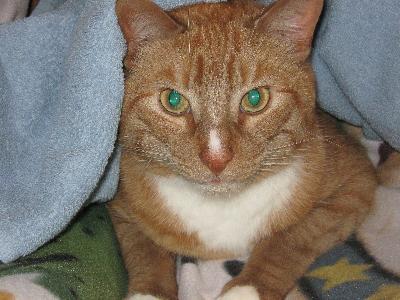Atenolol


Prescription required.
Learn more
Don’t have a veterinarian? Book an appointment with Vetster
 Temporarily Out of Stock
Temporarily Out of Stock
 Thank you, we will notify you when this product is available.
Thank you, we will notify you when this product is available.
Prescription required.
Learn more
Don’t have a veterinarian? Book with Vetster


What is Atenolol?
Atenolol is a beta-blocker used to treat certain heart conditions such as arrhythmias. It may also be used to lower blood pressure and treat enlarged hearts in cats. Atenolol requires a prescription from your veterinarian.
For:
Cats and Dogs
Benefits:
- Treats cardiovascular diseases and conditions (hypertension, coronary heart disease, arrhythmias, and angina (chest pain))
- Also, lowers blood pressure and treats enlarged hearts in cats
- May reduce risk of heart complications following a heart attack
How does atenolol work?
Atenolol is a beta-blocker that works by affecting the response to nerve impulses in certain parts of the body. As a result, the heart beats slower and decreases blood pressure. When your pet's blood pressure is lowered, the amount of blood and oxygen to the heart is increased.
Cautions:
Tell your veterinarian if your pet is being given any prescription or over-the-counter medicines, as they may interact with Atenolol. If your pet experiences any unusual side effects contact your veterinarian.
Brand Name:
Tenormin (ICI)
Generic Name:
Atenolol
What is the most important thing I should know about atenolol?
Atenolol is a beta-blocker. Beta-blockers affect the heart and circulatory system (arteries and veins). Atenolol is used to treat certain heart conditions such as arrhythmias. It is also used to lower blood pressure and to treat enlarged hearts in cats. Atenolol may also be used for purposes other than those listed here. Atenolol is a prescription medication not FDA approved for veterinary use; however, it is a commonly accepted practice for veterinarians to use this medication in dogs, cats and ferrets. Atenolol is available as 25 mg tablets. Call your veterinarian immediately if the pet has shortness of breath. Atenolol may cause drowsiness.
What should I discuss with my veterinarian before giving atenolol to my pet?
Tell your veterinarian if your pet has asthma; heart problems such as low blood pressure, a slow heart rate, heart block, sick sinus syndrome, heart failure or other heart problems; diabetes; depression; thyroid disease; kidney disease; liver disease; or any type of circulatory disease. Tell your veterinarian if your pet is pregnant or lactating.
How should atenolol be given?
Give this medication exactly as directed by your veterinarian. The usual dose and the frequency of administration is based on the condition and your pet's response to treatment. Do not stop giving atenolol abruptly unless you are directed to do so by your veterinarian. Stopping abruptly may make the condition worse. If you do not understand the directions ask the pharmacist or veterinarian to explain them to you. Atenolol can be given with or without food. Atenolol should be given with lots of water. Do not stop giving atenolol abruptly unless you are directed to do so by the veterinarian. Stopping abruptly may make the condition worse.
What are the potential side effects of atenolol?
If any of the following serious side effects occur, stop giving atenolol and seek emergency veterinary medical attention; an allergic reaction (difficulty breathing; swelling of the lips; tongue or face; hives), wheezing or shortness of breath; an unusually slow or irregular heart beat; leg pain or cramping; sudden weight gain. Other less serious side effects may occur. Continue giving atenolol and talk to your veterinarian if your pet experiences upset fatigue or confusion; dizziness; diarrhea, constipation, gas, nausea, or vomiting. Other side effects may also occur. Talk to your veterinarian about any side effect that seems unusual or bothersome to your pet.
What happens if I miss giving a dose of atenolol?
Give the missed dose as soon as you remember during the same day. However, if you don't remember until the next day, skip the dose you missed and give only the next regularly scheduled dose. Do not give a double dose of the medication.
What happens if I overdose my pet on atenolol?
Seek emergency veterinary medical treatment. Symptoms of atenolol overdose include a slow heart beat, shortness of breath, fainting, dizziness, weakness, confusion, nausea and vomiting.
What should I avoid while giving atenolol to my pet?
Atenolol may cause drowsiness. Tell the veterinarian your pet is taking atenolol prior to any surgery on your pet.
What other drugs will affect atenolol?
Tell your veterinarian if your pet is being given a heart medication such as diltiazem (Cardizem) or digoxin; insulin; a nonsteroidal anti-inflammatory (NSAID) such as carprofen (Rimadyl) or aspirin; a respiratory medication such as Albuterol (Ventolin); cimetidine (Tagamet); or prescription or over the counter cough medicines, or cold medicines. Drugs other than those listed may also interact with atenolol. Talk to your veterinarian or pharmacist before giving any prescription or over the counter medicines.


Atenolol Directions:
- Atenolol is a beta-blocker available by prescription and used in dogs, cats, and ferrets to treat certain heart conditions such as arrhythmias.
- Atenolol is not FDA approved for use in veterinary medicine; however, it is a commonly accepted practice for veterinarians to prescribe this medication for dogs and cats.
- Atenolol is also used to lower blood pressure and to treat enlarged hearts in cats.
Do not stop giving atenolol abruptly unless you are directed to do so by your veterinarian. Stopping abruptly may make the condition worse. Atenolol may cause drowsiness.
Atenolol Dosage:
| Weight | Dosage |
|---|---|
| All weights | The usual dose and the frequency of administration are based on the condition and your pet's response to treatment. Atenolol should be given as directed by your veterinarian. |
| Weight | Dosage |
|---|---|
| All weights | The usual dose and the frequency of administration are based on the condition and your pet's response to treatment. Atenolol should be given as directed by your veterinarian. |
| Horses |
|---|
| Do not use! |
Storage:
Should be stored at room temperature.


Atenolol Ingredients:
| Active Ingredient | Amount |
|---|---|
| Atenolol | 25 mg |


 Swipe
Swipe
Customers also boughtView All
 Swipe
Swipe



















































 Would recommend
this product
Would recommend
this product











